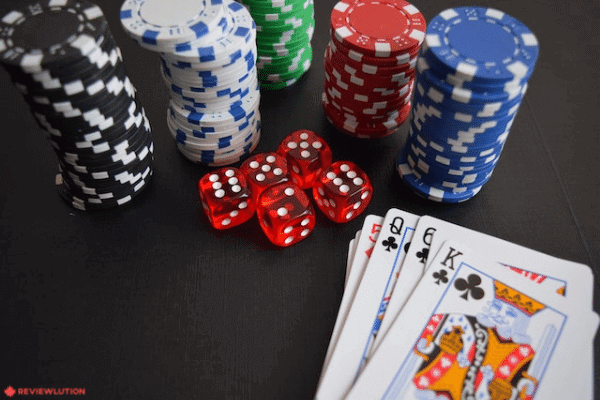Is Day Trading Gambling? A Definitive Answer
Is day trading gambling?
Although it may feel similar at times, day trading is not the same as gambling.
In fact, there are several differences between the two which we will go over in detail below.
But first, let’s get started with the basics.
What is Day Trading?
Day trading is the act of buying and selling (or selling and buying) securities within a short period of time, typically on the same day. Most day traders in Canada trade domestic and US stocks, however, they can also go for options and Exchange-Traded Funds (ETFs).
The main goal of day traders is to generate profits by leveraging stock price volatility. Their decisions are based on current trends and knowledge of a given market which allows them to easily recognize profitable opportunities.
When is day trading gambling?
Similar to traders, gamblers take a small amount of money and risk it to get a higher return. Both involve making quick decisions that could make you a huge profit or lead to substantial losses—with the latter being more prevalent in gambling and in day trading. Actually, some studies show that over 80% of day traders fail within a year, while around 5.8% of gamblers across the world are classified as problem gamblers.
Is day trading investing?
No, with day trading there is a quick turnover of securities while investing focuses on long-term growth and a steady build-up of profit from interest and dividends rather than the buying and selling of stocks and other securities.
You might be interested: TFSA vs RRSP: Which one is better for investing?
Differences Between Day Trading and Gambling
What sets these two activities apart?
Strategy
The biggest difference is that gamblers play the available odds, while traders analyze and strategize based on past performances, market trends, and price movements. In fact, traders must have an in-depth understanding of the market they are trading in, so they use sophisticated analytical tools, advanced viewing charts and real-time market news and updates to decide which stock to buy or sell, when to execute the order and how much to spend.
In addition to an entry strategy, traders also have an exit plan in place as soon as they start trading, allowing them to get out of the market at the right time and thus limit their losses. In short, day trading requires extensive research, planning, and analysis.
That is not to say that gamblers do not use different strategies, especially in games like poker or baccarat. Most of these, however, are either based on mathematical theories or myths and beliefs (neither of which have been proven to be 100% effective).
The truth is that the outcome of gambling is always random—you can try out several different slot-winning strategies or even learn to count cards, but the only way you can win is with luck on your side.
The house always has an edge
The house edge is the share of a player’s bet the casino will retain as profit over the long term. This is how bookies and casinos make money. For instance, the house edge in blackjack is usually 2%, meaning for every $100 you bet, you lose $2 (although this is just a rough estimation).
The markets you invest in on the stock exchange, however, do not care if you make or lose money. All of your profits and losses are a direct result of market volatility since there is no middleman taking a cut.
Approach
When people gamble, they are driven by emotion—it’s easy to get excited and lose your cool when you come across the glitz and glam of casinos. Since gamblers’ decisions are dictated by sentiments and the high of a win, chasing losses can become very hard to avoid.
Conversely, day trading is a more methodical process as traders tend to rely on research and analysis when selling and buying stocks. For instance, if you see that a stock is not performing well, you can move on to other, more profitable options, rather than keep on putting money into a product that does not pay out.
Experience
Another thing is that trading comes with a learning curve—every decision you make, even if it leads to a loss, is a learning experience that you can use to your advantage in the future.
With gambling, however, there is no takeaway from either winning or losing in terms of experience—the chances of a beginner getting lucky when playing video slots are the same as experienced players hitting the jackpot.
Slow vs Fast Gains
Even though day traders can have short-term gains, the focus is predominantly on long-term growth, which requires developed logic and reasoning skills, patience and discipline. Ultimately, day traders are looking to get a source of steady income from this activity.
By contrast, gamblers usually go for fast and big payouts, such as hitting a progressive jackpot, which often results in hasty and risky decisions.
Tax
One of the biggest differences between gambling and day trading is the way your profits are taxed. Namely, gambling winnings in Canada are not taxable as long as you are gambling casually rather than pursuing it as a professional gambler.
Profits from day trading, on the other hand, are taxable, regardless of whether the CRA considers you to be a professional trader (in which all gains are taxed as business income by the Canada Revenue Agency) or casual investor (this way only 50% of your gains are taxed).
Conclusion
Day trading can be a lot like gambling if you get caught up in the high of winning and try to make a profit on every trade. Good traders should be able to take losses—if you are holding onto losing positions after entry conditions have turned negative, you are no longer using tested and rational trading methods, but are relying on luck. So, in effect, you are no longer trading and are gambling instead.
FAQ
No, investing is nothing like gambling. Investing takes a lot of discipline, planning, patience and analysis, even more so than day trading. Another huge difference between investing and gambling is that when you invest in assets, you are in it for the long run rather than looking to make a quick profit.
No, trading stocks isn’t considered gambling because investing follows a whole different set of fundamental rules. Namely, buying and selling stocks involves strategy, while gambling is based on luck.
No, day trading is legal in Canada, although it involves rather complex strategies, which may not make it a suitable activity for new investors. Even if you give penny stocks a try, you need the experience and analytical skills to make a profit.
Yes, day trading can become addictive if you are doing it recreationally. That said, for most people day trading is a full-time occupation, so you are not feeding an addiction, but rather doing your job.
Sadly, yes, day trading can easily become an addiction, just like gambling. Generally, it has to do with the excitement triggered after a profit, owing to neurochemicals like dopamine and serotonin.











